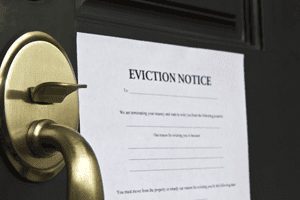Landlords right to access let property
You need to give a minimum of 24 hours’ notice and receive written, which can be an email or text.
Confirmation from your tenant that they agree to grant access, especially if they are not going to be present is essential.
The tenant is entitled to “quiet enjoyment “, which means the tenant has a legal right to live in the property as his or her home. That means the landlord must obtain the tenant’s consent before entering the let property.
Tenants are protected under the Protection from Eviction Act 1977, which prevents landlords from making the tenant feel they may be assaulted or harassed.
Landlord or an agent cannot just turn up at the let property, without notice, or permission from the tenant, this could be deemed as harassment.
Quiet enjoyment gives tenants the legal right to live in a property in quiet enjoyment without interference from the landlord or a letting agent.
Access for repairs, maintenance, or urgent work
While the law states that tenants are entitled to live in “quiet enjoyment”, the landlord has legal obligations to maintain the property and ensure it is safe to live in. The ‘landlord and tenant act 1985 section 11‘ stipulates that the landlord’s legal obligation is to repair and maintain the property and that the tenant must allow the landlord access to do essential repairs.
When tenants turn bad, some landlords struggle obtaining access for essential work, like access to carry out an annual gas safety check.
Many landlords understandably get very angry and frustrated when tenants unreasonably deny access to the let property. However, you still cannot force entry even if the tenant persistently refuses access.
If you have a tenant from hell, and your tenant is denying you access to the let property, then you need to adopt the following plan of action.
Write to your tenant say 2 letters each a week apart, requesting consent to enter. You need to explain the reason why you need access, how and why it is essential that the tenant allows access. Propose a date and time, and if the date is not convenient, then the tenant contacts you with a date-time that is convenient.
Make sure you keep copies of letters sent along with any other mode of communication to the tenant. If a claim is brought against you, or the council take action against you for alleged breaches, you will be able to provide evidence, you have done all you can to obtain access.
If the above fails, contact the local council the environmental or tenancy relation officer. In written or email request them to assist you to obtain access and let them have the letters you have sent to the tenant as evidence
Legal Action
Legal action is the last resort. However, if the tenant is still denied access to the let property, then you can seek an injunction, this usually is not the best option. You should consider serving a section 8 & 21 notice. Under section 8, you may be able to plead ground 12 for the reason the tenant has denied access.
Access In an Emergency
If the situation is so severe that there is a threat to property or life, like flooding/leak or fire, then the emergency services may enter the property.
What is a landlord’s right of entry?
Tenants UNDER UK law enjoy what is called the covenant for quiet enjoyment, which means tenants are entitled to live in the let property without interference from their landlord, or anyone acting on their behalf.
There are times when a landlord will need to be able to access the property to do repairs.
How much notice do I need to give before I visit a property?
Legally, you should provide your tenants with at least 24 hours’ notice before you visit the let property. However, you should give ample notice, where possible. This will give your tenants plenty of time to arrange to be in, if needs be, and can make your working relationship with the tenant easier.
Can I visit my property at any time?
A standard tenancy should stipulate that a landlord can only arrange a visit at a reasonable time of the day. This rule does not apply if there is an emergency.
Can my tenants refuse me access to my property?
Yes, a tenant has the right to refuse the landlord or agent access to the property. This could be for reasons like because the date and time are not convenient, and the tenant may suggest an alternative date or ask you to rearrange.
Can my tenant change the lock without my permission?
A tenant has a right to change the locks to the let property – and the tenant is legally not obliged to give you a key.
British Landlord Association, is a free national landlords association, join us for free now!
Is it worth being a landlord in 2020, is it still profitable?
There’s a New Sheriff in Town to Protect Landlords
Squatters in commercial and residential property – Squatters rights to claim and own property





